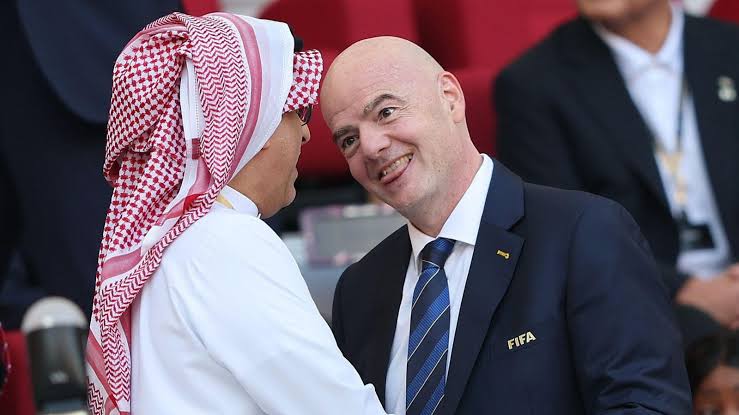The legal action taken by FIFA against Google, over the alleged defamation resulting from a website appearing in Google’s search results, raises significant concerns about freedom of speech, accountability, and the broader implications for democratic principles. While FIFA’s desire to protect its reputation is understandable, this case exemplifies the potential risks associated with powerful entities using legal avenues to control the narrative around them, which can have chilling effects on free speech and democratic discourse.
FIFA’s Controversial Practices
FIFA’s history is marred by numerous allegations of corruption, manipulation, and unethical practices, particularly in relation to the governance of football in Africa. One of the most glaring examples is the alleged involvement of FIFA and Infantino in influencing the leadership of the Confederation of African Football (CAF). Infantino has been accused of playing a direct role in the appointment of presidents at CAF, a practice that many see as an overreach of FIFA’s authority and a manipulation of the independence of regional football governance.
In addition, there are serious accusations that Infantino has used FIFA’s Ethics Committee as a tool to eliminate opponents and consolidate his power, particularly on the African continent. Critics argue that the Ethics Committee, which is ostensibly designed to uphold integrity within FIFA, has been weaponized to target those who challenge Infantino’s authority. This manipulation not only undermines the legitimacy of FIFA’s governance structures but also raises concerns about the fairness and transparency of its operations.
Risk to Freedom of Speech
FIFA’s lawsuit highlights the tension between reputation management and freedom of expression. At its core, this case challenges the balance between an individual’s or organization’s right to protect their reputation and the public’s right to critique and disseminate information, even if it’s critical. The risk here is that a successful outcome for FIFA could embolden other powerful organizations and individuals to use defamation laws to silence critics and suppress content that they find unfavorable.

Reports in the Swiss media that FIFA has filed a case seeking to gag Google. and control the flow of information about the organisation.
If courts begin to side with plaintiffs like FIFA in such cases, it could lead to a slippery slope where search engines and other platforms might become overly cautious, leading to increased censorship. This self-censorship could stifle important discussions and limit the diversity of viewpoints available online, which is essential for a healthy democracy. The fear of litigation could deter individuals and smaller entities from expressing dissenting or critical opinions, fundamentally undermining the principle of free speech.
Accountability and Transparency Concerns
Another significant issue is the potential impact on accountability. Organizations like FIFA, which have been historically embroiled in controversies, must remain open to scrutiny. Public accountability is a cornerstone of democratic societies, ensuring that powerful entities are held responsible for their actions. If FIFA succeeds in removing critical content under the guise of defamation, it may set a precedent that allows organizations to evade scrutiny by silencing dissenting voices, thus eroding public trust and transparency.
In a digital age where information is disseminated rapidly and widely, search engines like Google play a crucial role in ensuring that diverse perspectives are accessible to the public. Limiting this access by removing content could not only reduce accountability but also lead to a less informed public, which is detrimental to the democratic process.
Threat to Democratic Principles
Democracy thrives on the free exchange of ideas, where citizens are informed, can express their opinions, and hold those in power accountable. FIFA’s legal action, if successful, could establish a framework where powerful entities are able to control the information ecosystem to their advantage. This could result in a sanitized version of reality, where only positive narratives are allowed to prevail, leading to an environment where dissent is discouraged, and democratic engagement is weakened.
Moreover, this case could influence how other jurisdictions, particularly those with less stringent free speech protections, approach similar cases. The global nature of the internet means that legal precedents set in one country can have far-reaching implications, potentially inspiring more repressive regimes to adopt similar tactics to suppress dissent.
Conclusion
While FIFA’s lawsuit against Google might seem like a straightforward case of an organization seeking to protect its reputation, the broader implications are far more concerning. This case highlights the delicate balance between protecting reputations and safeguarding freedom of speech, accountability, and democracy. If legal systems begin to prioritize the interests of powerful entities over the right to free expression, the consequences could be profound, leading to a more controlled, less open society where democratic principles are at risk.
Emiliano FIFAntinio

